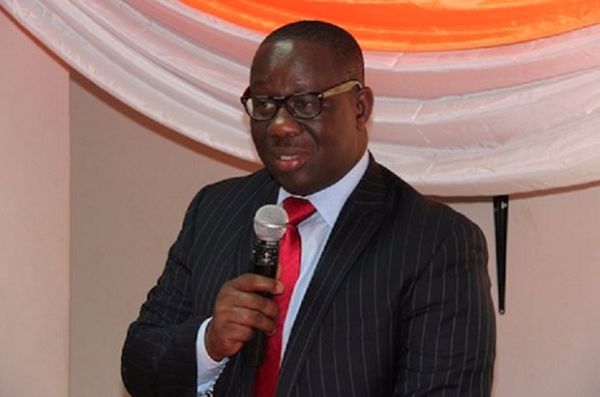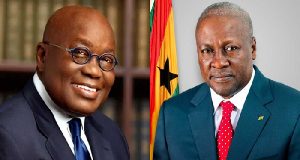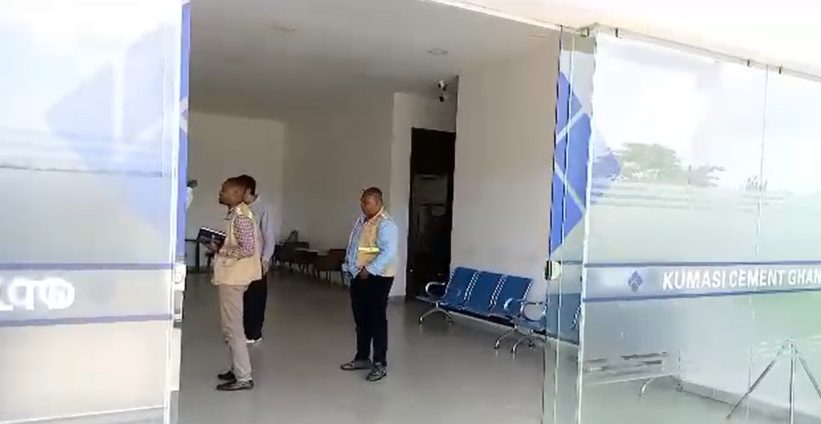The Supreme Court has ruled that charges levelled against a former Director-General of the Social Security and National Insurance Trust (SSNIT), Mr Ernest Thompson and four others by the state are inappropriate.
Mr Thompson and four others have been accused of causing financial loss of more than $14.8 million in the SSNIT Operational Business Suite (OBS) project.
In a unanimous judgement of a five member panel of the Supreme Court, presided over by Justice Yaw Appau said the charges preferred against the accused persons do not meet the constitutional requirments.
This was after the State had gone to the apex court to challenge the Court of Appeal’s ruling that the particulars of offence levelled against Thompson were scanty.
The panel chaired by Justice Yaw Appau ruled that, the apex court is in agreement with the ruling of the Court of Appeal and so there is no merit in the application and dismissed same.
The presiding judge after the court dismissal of the application charged the Director of Public prosecution Mrs Yvonne Atakora Obuobisah, who represented the state to go back and look at the charges and provide enough particulars to them.
He said, the country has gone past the stage where accused persons are surprised by the state.
The four other accused in the matter are Mr John Hagan Mensah, a former Information Technology (IT) Manager at SSNIT; Ms Juliet Hassana Kramer, the Chief Executive Officer of Perfect Business Systems (PBS); Mr Caleb Kwaku Afaglo, a former Head of Management Information Systems (MIS) at SSNIT; and Mr Peter Hayibor, the lawyer for SSNIT.
They have pleaded not guilty to the charges with the trial yet to commence at the Accra High Court due to the legal tussle over the particulars of the offences.
*What is the issue?*
The former SSNIT boss wants the charges against him struck out on grounds that the prosecution failed to provide adequate particulars of the offences as required by law.
*Particulars of offences*
On every charge sheet, there is a statement(s) of offence(s) which states the particular offence an accused person has been charged with and the particulars of offence which provide the details of what an accused person is alleged to have committed in relation to the offence and this case was not different.
However , it is the case of Mr Thompson that the prosecution failed to provide sufficient particulars on the offences levelled against him as required under Article 19 (2) of the 1992 Constitution and Section 122 of the Criminal Offences (Procedure) Act, 1960 (Act 30).
His lawyers argued that the particulars are so scanty that they do not afford their client any concrete information to enable him to mount his defence.
*Charges*
The prosecution, on the other hand, has insisted that the particulars of the offences contain adequate information, and argue that the contention of Mr Thompson when allowed holding, will amount to prosecution providing evidence in the particulars of offence.
The offences levelled against Mr Thompson and the other accused persons include willfully causing financial loss to the state, conspiracy to commit the crime, defrauding by false pretence in contravention of the public procurement act and authoring of forged documents.
*Why Supreme Court?*
The former SSNIT boss first filed his application before the trial court, presided over by Justice Henry A. Kwofie, a Justice of the Court of Appeal sitting as a High Court judge, but it was dismissed on April 19, 2019.
Dissatisfied with the decision, Mr Thompson appealed to the Court of Appeal on the grounds that Justice Kwofie committed an error of law and also erred by dismissing his application.
On April 3, 2020, a three-member panel of the Court of Appeal in a 2-1 majority decision upheld Mr Thompson’s appeal and held that, indeed, the particulars of offences on the charge sheet were not sufficient.
It accordingly directed the prosecution to “provide reasonable information to enable the appellant (Mr Thompson) prepare adequately for his defence”.
The Attorney-General decided to appeal the Court of Appeal’s decision at the Supreme Court.
*Supreme Court Panel*
The five-member panel of the apex court that sat on the case are Justice Yaw Appau as chair, with Justices Agnes M.A. Dordzie, Avril Lovelace-Johnson, Gertrude Torkonoo and Issifu Omoro Tanko Amadu.
*Alleged OBS scandal*
In June 2010, SSNIT initiated the $34 million OBS project to use Information and Communications Technology (ICT) to revamp its operations to enable it to provide a state-of-the-art pension administration system in the country.
It is the case of the prosecution that between September 2013 and September 2016 the five accused persons engaged in various illegalities that caused financial loss to the state in relation to the said project.
The contract sum, the prosecution said, also ballooned from $34 million to over $66 million, even though the OBS system failed to perform efficiently as the project contract had envisaged.
 Naagyei 90.3 Fm Agyapa
Naagyei 90.3 Fm Agyapa





